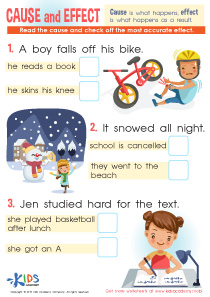Vocabulary enhancement Normal Reading Non-Fiction Worksheets for 9-Year-Olds
5 filtered results
-
From - To
Enhance your 9-year-old's vocabulary and reading comprehension with our engaging non-fiction worksheets. Designed specifically for young learners, these worksheets combine informative texts with activities that boost word knowledge and understanding. Each worksheet focuses on important vocabulary skills, allowing children to explore new terms within real-world contexts. Fun and interactive, these resources motivate learners to think critically and build their language skills effectively. Perfect for at-home practice or classroom use, our vocabulary enhancement worksheets provide an enjoyable way to improve reading abilities while fostering a love for learning. Visit us today to access these valuable educational tools!
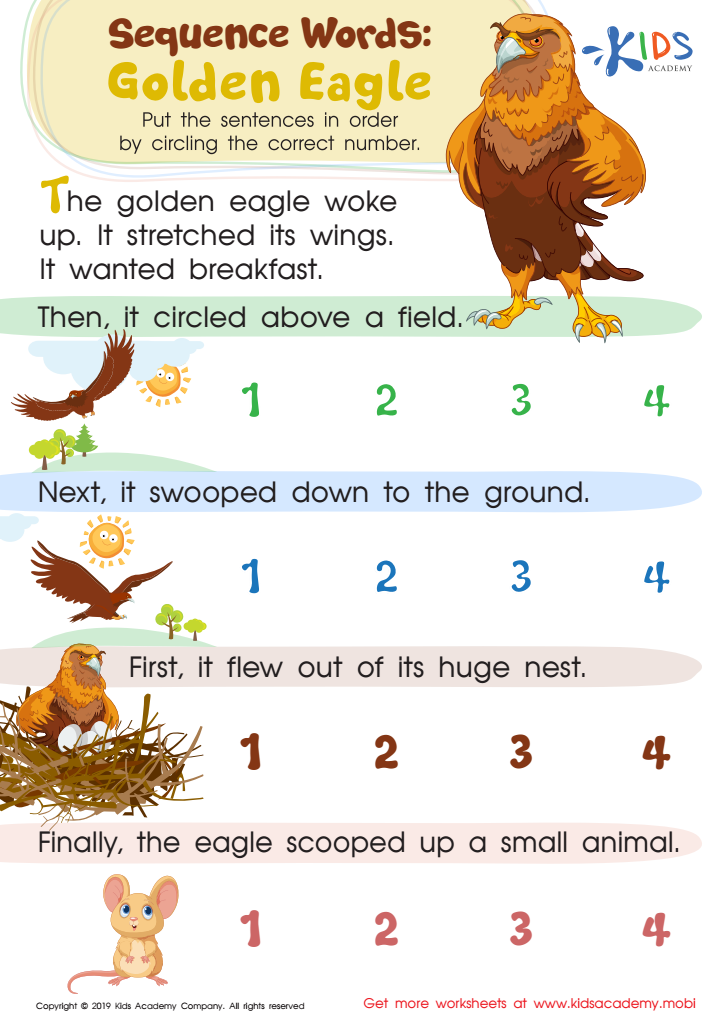

Sequence Word Eagle Worksheet
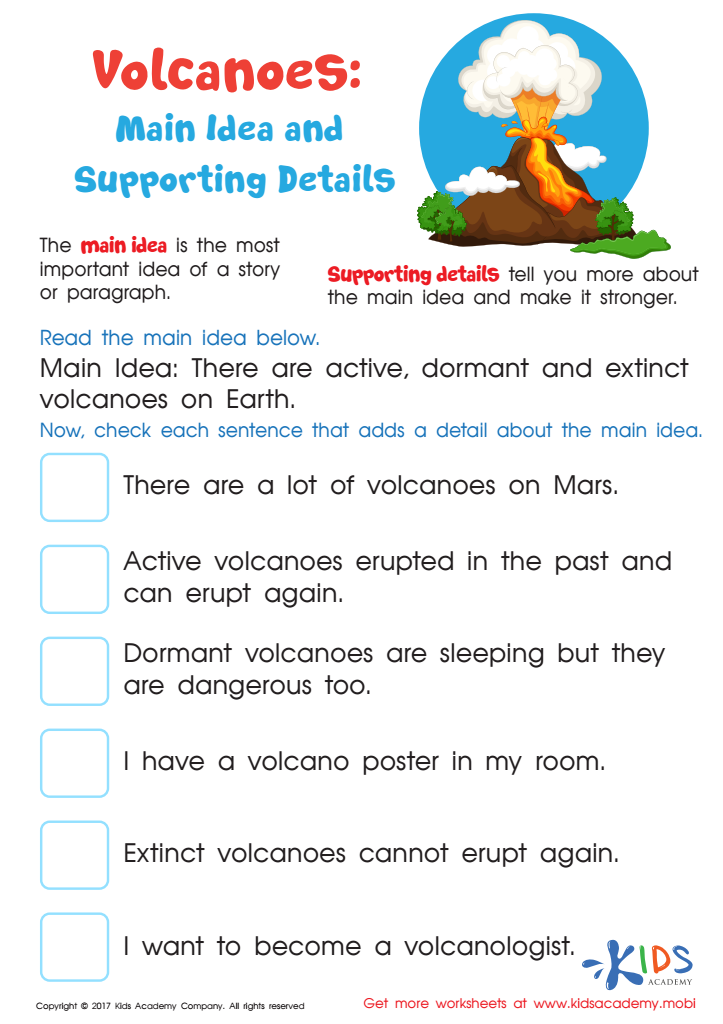

Volcano Facts Worksheet
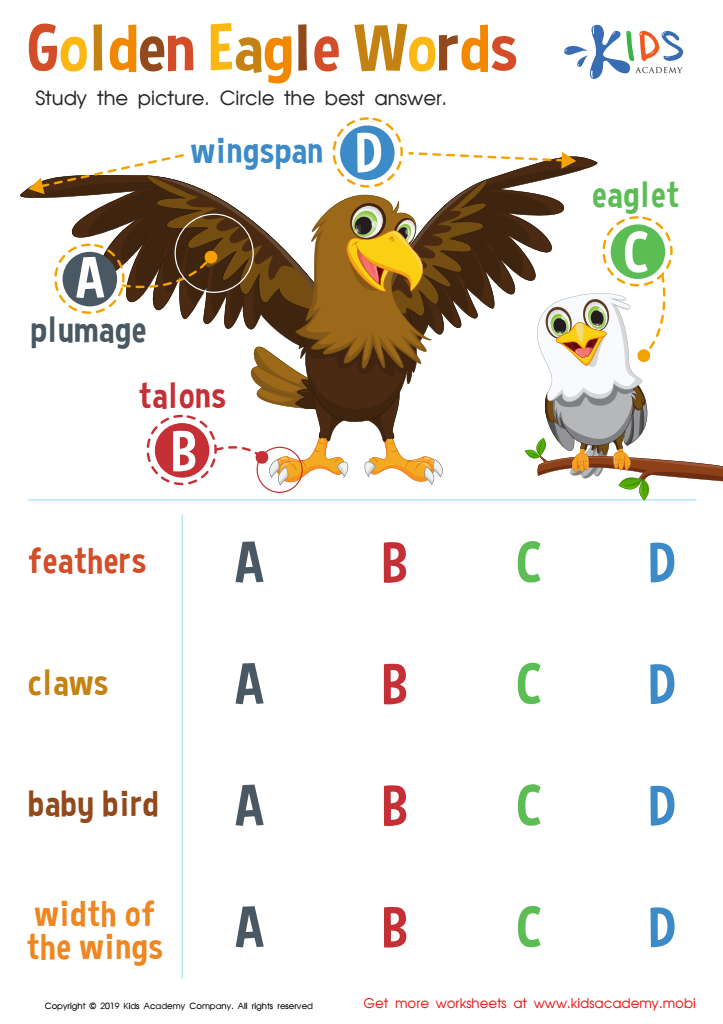

Golden Eagle Words Worksheet
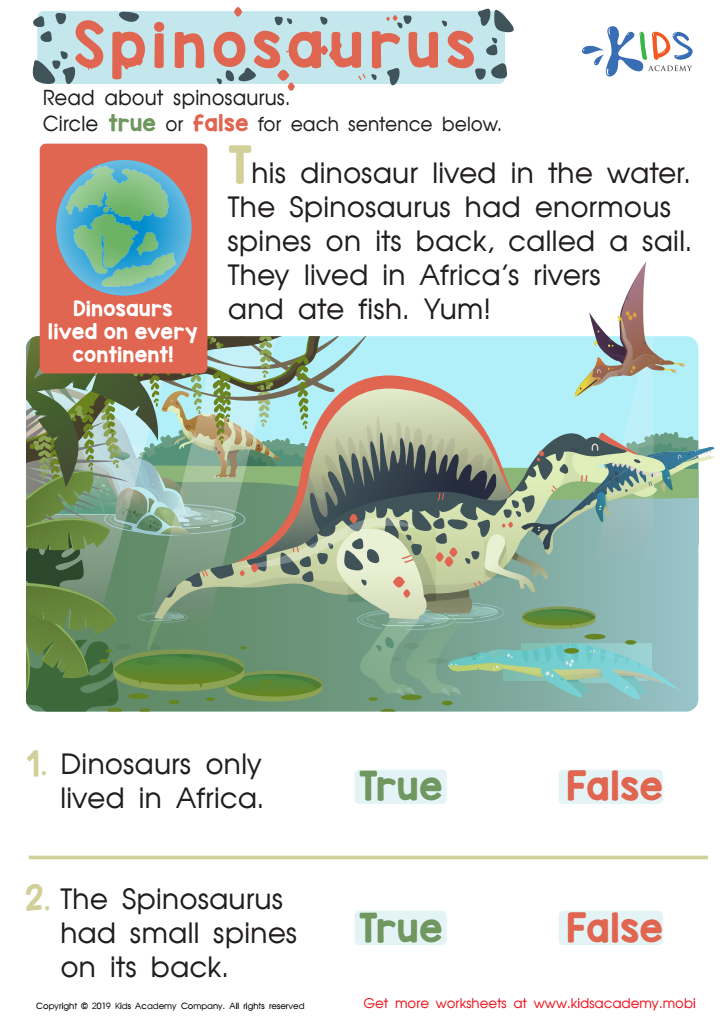

Spinosaurus Assessment Worksheet
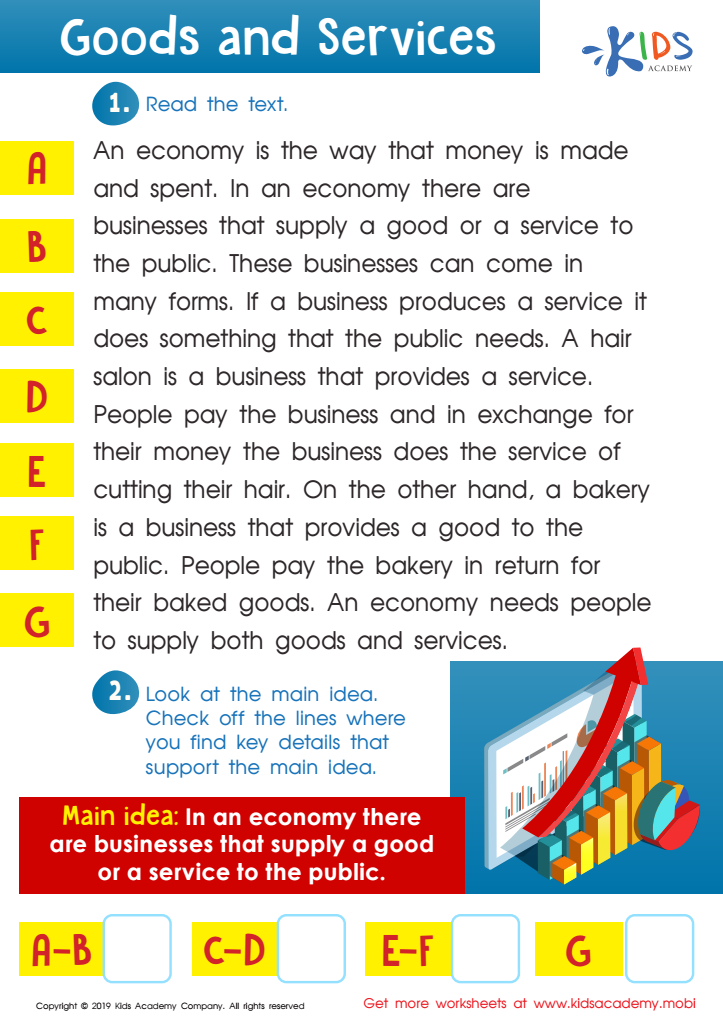

Goods and Services Worksheet
Vocabulary enhancement is crucial for 9-year-olds, especially when engaging with non-fiction texts. At this age, children are developing reading comprehension skills that will serve them well throughout their academic careers and beyond. A strong vocabulary aids in understanding complex concepts found in non-fiction materials, fostering a love for learning and exploration.
Parents and teachers should prioritize vocabulary enhancement because it equips children with the words they need to navigate subjects ranging from science to history. As children learn to decipher the meanings and contexts of new words, their confidence increases, encouraging independent reading and inquiry. A rich vocabulary also supports writing skills, enabling children to express their thoughts and knowledge articulate more precisely.
Moreover, enhancing vocabulary can directly impact a child’s academic performance. Students with expansive vocabularies are better able to grasp new information and perform well on standardized tests, crucial for future educational opportunities. Engaging with non-fiction texts helps cultivate critical thinking and analytical skills, as young readers learn to sift through facts and synthesize information.
Ultimately, investing in vocabulary enhancement enriches a child’s cognitive development and prepares them for lifelong learning, making it a priority for parents and educators alike.
 Assign to My Students
Assign to My Students










